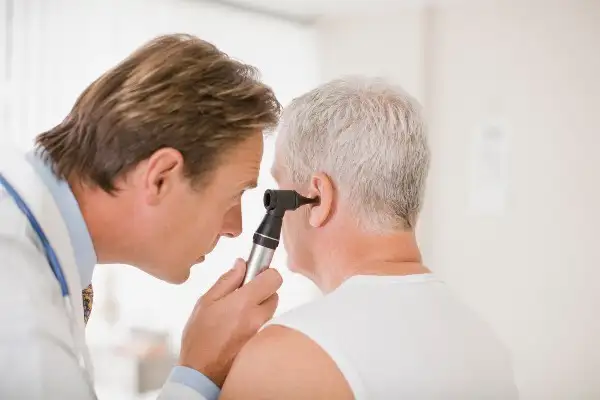
THE IMPORTANCE OF ENT HEALTH: A GUIDE TO EAR, NOSE, AND THROAT CARE
Maintaining good health is essential for a high quality of life, and while many people focus on general wellness, it's important not to overlook the specific areas of ear, nose, and throat (ENT) health. The ENT system is responsible for many functions, including hearing, balance, breathing, and swallowing, and problems in this area can lead to discomfort or serious medical conditions. This article explores common ENT issues, their symptoms, and tips for prevention.
COMMON ENT CONDITIONS
1. EAR INFECTIONS
Ear infections are particularly common in children but can affect adults as well. They occur when fluid builds up in the ear, leading to inflammation and discomfort. Symptoms include ear pain, difficulty hearing, and sometimes fever. Chronic ear infections can lead to more serious complications such as hearing loss if untreated.
2. SINUSITIS
Sinusitis, or inflammation of the sinuses, is a condition that affects the nose and can cause significant discomfort. It occurs when the nasal passages become inflamed due to infection, allergies, or irritants. Symptoms include a blocked nose, facial pain, headaches, and nasal discharge. Chronic sinusitis can last for several months if not treated.
3. TONSILLITIS
Tonsillitis involves the inflammation of the tonsils, the two masses of tissue at the back of the throat. It is often caused by viral or bacterial infections and is characterized by sore throat, difficulty swallowing, swollen tonsils, and fever. In severe cases, recurrent tonsillitis may require the removal of the tonsils through a procedure called a tonsillectomy.
4. HEARING LOSS
Hearing loss can result from various causes such as aging, excessive noise exposure, ear infections, or injury to the ear. It may come on gradually or suddenly, and can affect one or both ears. Early diagnosis and treatment are key to managing hearing loss, whether through hearing aids, surgery, or other interventions.
5. SLEEP APNEA
Obstructive sleep apnea is a condition where the throat muscles relax too much during sleep, causing breathing to stop temporarily. This can lead to snoring, fatigue during the day, and other health complications such as high blood pressure and heart disease. ENT specialists can help diagnose and treat sleep apnea, often through CPAP machines or surgery.
TIPS FOR MAINTAINING ENT HEALTH
1. PROTECT YOUR HEARING
Noise-induced hearing loss is preventable. Avoid prolonged exposure to loud noises, and wear ear protection in noisy environments such as concerts or construction sites. Also, limit the use of headphones or earbuds at high volumes.
2. STAY HYDRATED
Drinking enough water is crucial for keeping the throat and nasal passages moist, which can prevent irritation and infections. Hydration also helps in the production of mucus, which traps bacteria and other particles before they can cause infection.
3. PRACTICE GOOD HYGIENE
Washing hands frequently can reduce the risk of spreading infections that can lead to sinusitis, tonsillitis, or other ENT conditions. Avoid touching your face, especially your nose, mouth, and ears, to minimize the introduction of harmful bacteria.
4. MANAGE ALLERGIES
Allergies can exacerbate ENT problems such as sinusitis or ear infections. Keep track of triggers, such as pollen or pet dander, and consult with an ENT specialist or allergist to manage symptoms. Over-the-counter medications or prescribed allergy treatments can help.
5. AVOID SMOKING
Smoking is harmful to ENT health, as it irritates the throat and nasal passages and increases the risk of sinus infections, ear infections, and throat cancer. Quitting smoking improves overall health and greatly reduces the risk of these issues.
WHEN TO SEE AN ENT SPECIALIST
While many ENT conditions can be managed at home or with the help of a primary care physician, certain symptoms may require the expertise of an ENT specialist. These include persistent ear pain or hearing loss, chronic sinusitis, difficulty breathing, severe sore throat, or recurring infections. An ENT specialist can provide specialized care, including diagnostic tests, surgical options, or other treatments to alleviate symptoms and prevent complications.
CONCLUSION
Taking care of your ear, nose, and throat health is vital for your overall well-being. By recognizing the symptoms of common ENT conditions and following preventive measures, you can avoid many of the discomforts and health risks associated with this system. If symptoms persist or worsen, don’t hesitate to seek the guidance of an ENT specialist for professional treatment and advice.
